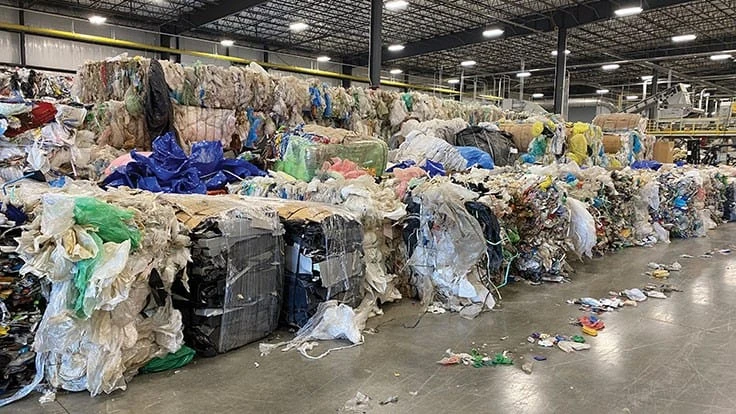
Virginia Gov. Ralph Northam signed SB 1164 into law March 29. The legislation, which passed with bipartisan support, will enable greater adoption of advanced recycling, which also is called chemical recycling, by classifying it as a manufacturing process and not solid waste management. The bill also defines "gasification," "postuse polymer" and other terms related to advanced recycling.
The American Chemistry Council (ACC), Washington, which supported the legislation, defines advanced recycling as “several different processes to convert postuse plastics into their original building blocks, specialty chemicals, feedstocks for new chemicals and plastics and other valuable products. … This type of recycled content is achieved through a mass balance allocation process certified by the International Sustainability & Carbon Certification PLUS (ISCC+).”
Regarding Virginia’s legislation, Joshua Baca, ACC vice president of plastics, says, “The American Chemistry Council’s Plastics Division is pleased to see bipartisan policy supporting advanced recycling become law in Virginia. Virginia is the 10th state to pass such legislation since 2017. It joins Florida, Wisconsin, Georgia, Iowa, Tennessee, Texas, Illinois, Ohio and Pennsylvania in encouraging the growth of advanced recycling by helping ensure these technologies have a predictable and transparent regulatory framework for operation.
“We thank Sen. Hangar and Delegate Plum for sponsoring the legislation and the state legislature for taking bipartisan action on advanced recycling. SB 1164 was approved with overwhelming bipartisan support in both the Senate (34 – 4) and House of Delegates (90 – 8).”
Baca says converting 25 percent of the recoverable plastics in Virginia into new products with advanced recycling could generate $179 million in estimated economic output annually.
“While we are pleased that SB 1164 was signed into law, we are disappointed to see last week’s Executive Order Seventy-Seven (2021), which bans the use of single-use plastics at state facilities, and last month’s passage of HB 1902, which bans polystyrene foam food service containers,” he continues. “Such actions do not help the environment but could negatively impact Virginia’s budget and hurt consumers. Banning plastics—a material that helps to significantly reduce greenhouse gas emissions—will neither protect our environment nor create a more circular economy. We strongly encourage Gov. Northam to revisit these decisions.”
A recent report prepared by Eugene, Oregon-based sustainability firm Good Company for the ACC, finds that emissions from advanced recycling facilities, which are regulated by federal, state and local agencies, are likely to be below most permitting thresholds. The findings demonstrate that these emissions are similar to or lower than those from other common facilities, such as hospitals, college campuses, food processing and auto manufacturing.
Get curated news on YOUR industry.
Enter your email to receive our newsletters.Latest from Recycling Today
- Unifi launches Repreve with Ciclo technology
- Fenix Parts acquires Assured Auto Parts
- PTR appoints new VP of independent hauler sales
- Updated: Grede to close Alabama foundry
- Leadpoint VP of recycling retires
- Study looks at potential impact of chemical recycling on global plastic pollution
- Foreign Pollution Fee Act addresses unfair trade practices of nonmarket economies
- GFL opens new MRF in Edmonton, Alberta






